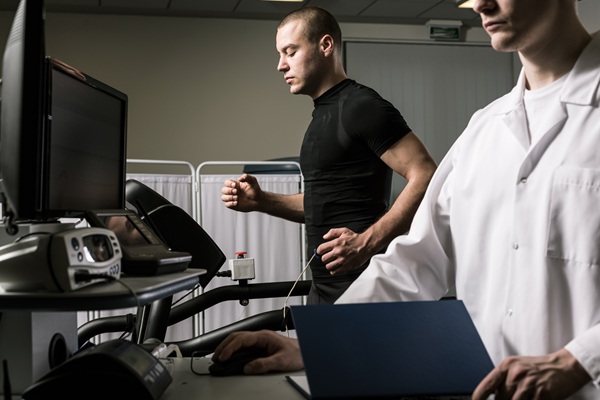What Is the Prognosis for Cardiovascular Disease Patients?

You certainly never want to hear that you have cardiovascular disease. This condition can have serious effects, including heart attack, stroke and even death. A diagnosis may scare you, but there are steps you can take to reduce these critical risks. You can still live a fulfilling life and accomplish your goals of health and wellness.
At-risk people
Cardiovascular disease is the No. 1 killer in the United States. Family history and age can play a role in developing the condition. Many victims, however, find they have the disease due to poor lifestyle choices. Smoking and heavy alcohol consumption can damage the heart and arteries. Plaque can build up in the artery walls due to a diet high in salt, fat and sugar. Also, a lack of exercise can lead to high blood pressure, which contributes to heart disease.
Lack of attention
People may not know for sure whether they have cardiovascular disease, but there are signs that point to it. Frequent headaches, dizziness and lightheadedness can be clues that the individual has heart problems. Other symptoms include shortness of breath, leg numbness and jaw pain. Ignoring these issues significantly raises the person’s chances of the disease getting worse. Death within five years is more likely without habit changes or doctor intervention.
Older patients
The older a person is, the higher the probability that the individual will get cardiovascular disease. People over the age of 75 are much more likely to suffer the effects of this condition than younger people. Heart disease hospitalizes older people more than any other medical issue. Treatment is possible during this stage of life, but survival rates decline as the patient ages.
Sedentary people and cardiovascular disease
Inactivity and heart disease are not a good combination. People who do not exercise are not only at risk for developing this condition, but it is difficult for such patients to reverse the effects of the disease. Regular aerobic exercise is vital for strengthening the heart and cleaning out the blood vessels.
Smoking and a poor diet
Cardiovascular disease patients who smoke should stop immediately. Smoking will raise a person’s blood pressure, which can cause heart attacks or stroke. People who smoke cigarettes have a much lower chance of living for several years with heart disease than those who avoid the habit. Similarly, patients who do not watch their diets should not expect to live more than a few years.
Get help quickly
With a proper diet, consistent exercising and help from a doctor, people can live for several years after the diagnosis. However, ignoring signs and symptoms can cut life expectancy down to less than a year.
Know what you are up against
If you have learned that you have cardiovascular disease, you should take the news seriously. This disease can be a killer, but if you commit to living a healthy life, you can defy the odds. Follow your doctor’s counsel and do your part to improve your lifestyle and wellness.
Get more information about Florida Premier Cardiology in Boynton Beach at https://boyntonbeach.floridapremiercardio.com.
Check out what others are saying about our services on Yelp: Cardiovascular Disease in Boynton Beach, FL.
Recent Posts
According to the Centers for Disease Control and Prevention, heart disease is the leading cause of death for adults in the United States. Therefore seeking chest pain treatment is crucial, especially for those at high risk for heart disease. However, chest pain can result from various health issues, so how does one know when it…
A cardiac stress test is a diagnostic tool to evaluate how well the heart performs under physical stress. Cardiologists use this test to detect underlying cardiovascular conditions, monitor treatment progress, or assess the risk of future heart complications. Cardiac stress tests are essential in the early detection and management of heart disease.A cardiac stress test…
Peripheral arterial disease affects blood flow in the arteries, most commonly in the legs. It develops due to plaque buildup in the arteries that causes them to narrow and restrict circulation, possibly leading to discomfort, difficulty walking, and other serious complications. Recognizing the symptoms early and exploring treatment options can help improve the quality of…
Receiving cardiovascular treatment is a critical step in managing heart health, but recovery and long-term are equally vital to ensure long-term wellness. Whether the treatment involves medication management, interventional procedures, or surgery, maintaining a relationship with the cardiologist and following their recovery guidelines is crucial. A structured follow-up plan allows patients to maintain the benefits…


